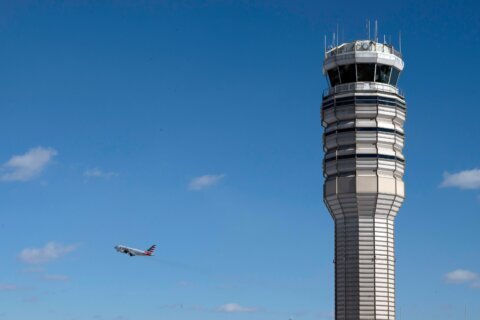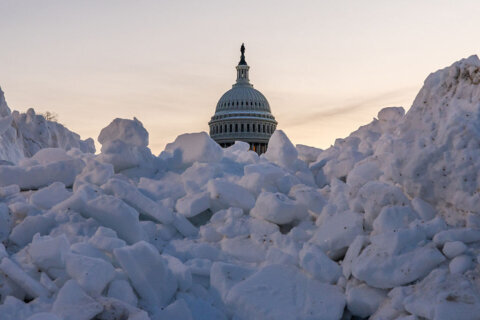A global organization has ranked D.C., Maryland and Virginia in how well their policies support workers during the coronavirus pandemic.
Oxfam, which aims to alleviate poverty, has evaluated policies of U.S. states, including D.C. and Puerto Rico. D.C. ranked 7; Maryland, 12; Virginia, 24 with recent, notable improvements.
The Best States to Work in COVID Index examines worker protections, health care protections and unemployment support.
The lowest-ranked state, Alabama, has no moratorium on evictions or utilities shut-off, no expanded telehealth services or expanded Medicaid access, no mandated paid sick or family leave and no requirements for personal protective equipment, or PPE. In contrast, Washington state, which comes in at the top, offers every one of those protections.
“All states have room to improve, but some are doing well to support working families from falling through the cracks,” Kaitlyn Henderson, senior research adviser for Oxfam America’s U.S. Domestic Program, said.
“Everyone needs to step up; everyone needs to do more; this is a really crucial time,” Henderson said. “We need states to continue to step up to protect working families during the pandemic.”
Three actions states can take involve paid leave, unemployment benefits and health care.
“This pandemic has shown us that everyone needs health care whether they’re employed or not employed,” Henderson said. “States need to expand Medicaid.”
Henderson said all states and U.S. territories should have paid sick time, paid family and medical leave programs that cover all workers and fund child care for all workers.
Improved unemployment benefits she said are crucial.
“If people can’t afford food and housing, we are not supporting the livelihood of people; and some states do OK, but not all do, and we need to be better,” Henderson said.
- Sign up for WTOP alerts
- Latest coronavirus test results in DC, Maryland and Virginia
- Coronavirus FAQ: What you need to know
- Coronavirus resources: Get and give help in DC, Maryland and Virginia
- Fall school plans for DC, Maryland, Virginia systems during coronavirus
- Hogan: Maryland can start Phase 3 of reopening plan on Friday
- As Labor Day approaches, Northam warns ‘virus is still alive and well’
- James Madison University moving to mostly online instruction
Looking for more information? D.C., Maryland and Virginia are each releasing more data every day. Visit their official sites here: Virginia | Maryland | D.C.
The index rankings are a “moment in time” snapshot of policies in place when data were compiled between Feb. 15 and July 1.
Since that time, Virginia (ranked 24) made significant changes, passing “a slew of worker protections for the pandemic,” that Henderson said are great examples of how local governments can support workers and working families.
“Virginia was the first to pass, specifically, a standard addressing COVID-19,” Henderson said. “Standards for PPE, cleaning protocols, access to hand-washing, mask-wearing on the job for workers. There is a mandate that workers need to pause every so often so workers can wash their hands.”
Maryland’s No. 12 designation and D.C’s seventh spot ranking are based in part on strong worker protection policies.
Examples of worker protections evaluated for the index are paid leave, being provided PPE, protection from forced return to work, protecting women against sexual harassment, and by offering pregnancy accommodations.
The report characterizes as a “failure” the lack of federal policies to address needs of working families impacted by the pandemic.
“The pandemic has exacerbated challenges facing low-wage working families in the U.S., but it did not create them,” Oxfam America’s U.S. Domestic Program director Minor Sinclair said in a news release.
“Instead, it has revealed the ugly reality of deep, structural problems for millions of working families who risk falling into poverty, hunger and homelessness,” Sinclair said.
See how other places ranked in Oxfam’s report.








